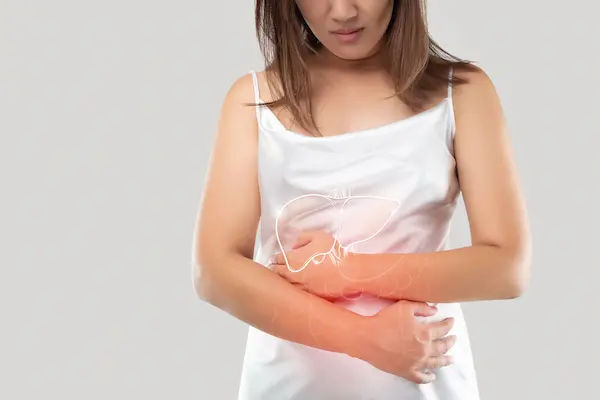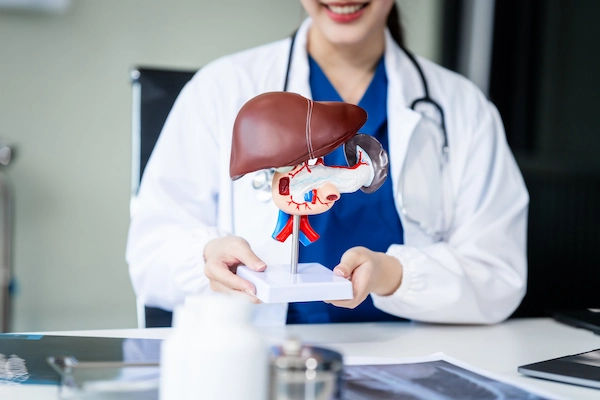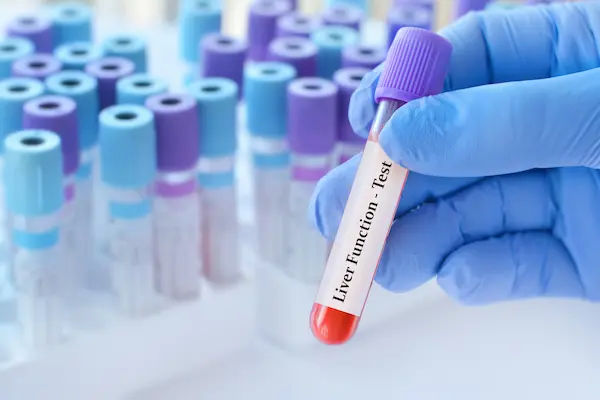Understanding Liver Diseases and Their Aspects
Understanding live diseases, common types, symptoms, causes and how does it affect your health. Learn how to opt for treatment options and manage the disease.

Written by Dr. M L Ezhilarasan
Reviewed by Dr. Rohinipriyanka Pondugula MBBS
Last updated on 13th Jan, 2026

Introduction
The liver is one of the most vital organs in our body, performing essential functions like detoxification, protein synthesis, and aiding digestion. However, liver diseases can disrupt these processes, leading to serious health complications if not addressed in time.
In this article, we’ll explore liver diseases—what they are, their symptoms, causes, and how they affect health. We’ll also discuss ways to manage liver conditions and when to seek medical help.
What Are Liver Diseases?
Liver diseases refer to any condition that damages the liver and affects its normal functioning. These can range from mild (like fatty liver) to severe (like cirrhosis or liver cancer). Early detection and treatment can prevent complications, so understanding the signs is crucial.
Consult General Practitioner for Personalised Advice
Common Types of Liver Diseases
Common types of liver diseases include:
1. Fatty Liver Disease (Alcoholic & Non-Alcoholic)
- Alcoholic Fatty Liver: Caused by excessive alcohol consumption.
- Non-Alcoholic Fatty Liver (NAFLD): Linked to obesity, diabetes, or high cholesterol.
2. Hepatitis (A, B, C, D, E)
- Viral infections that cause liver inflammation. Hepatitis B and C can lead to chronic liver damage.
3. Cirrhosis
- Advanced scarring of the liver due to long-term damage (from alcohol, hepatitis, or fatty liver).
4. Liver Cancer
- Often develops in people with chronic liver disease or cirrhosis.
5. Autoimmune Liver Diseases
- Conditions like autoimmune hepatitis, where the immune system attacks the liver.
Symptoms of Liver Disease
Early-stage liver disease may not show obvious symptoms, but as it progresses, you may notice:
- Fatigue and weakness
- Jaundice (yellowing of skin and eyes)
- Swelling in legs and abdomen (oedema & ascites)
- Dark urine & pale stools
- Nausea, vomiting, or loss of appetite
- Itchy skin
- Easy bruising or bleeding
If you experience any of these, consult a doctor immediately.
What Causes Liver Diseases?
Several factors contribute to liver damage:
- Excessive alcohol consumption
- Obesity and poor diet (high in fats & sugars)
- Viral infections (Hepatitis B & C)
- Medications & toxins (overuse of painkillers like paracetamol)
- Genetic disorders (Hemochromatosis, Wilson’s disease)
- Autoimmune conditions
How do Liver Diseases Affect Your Health?
A damaged liver struggles to perform its functions, leading to:
- Toxin buildup in the body causing confusion (hepatic encephalopathy).
- Fluid retention, leading to swelling in the abdomen and legs.
- Increased risk of infections and bleeding due to reduced protein production.
- Liver failure in severe cases requires a transplant.
How to Manage & Improve Liver Health?
1. Dietary Changes
- Eat a balanced diet with fruits, vegetables, whole grains, and lean proteins.
- Reduce sugar, salt, and unhealthy fats (fried foods, processed snacks).
- Stay hydrated—water helps flush out toxins.
- Limit alcohol or avoid it completely if you have liver disease.
2. Exercise & Weight Management
- Regular physical activity helps reduce fatty liver and improve metabolism.
- Aim for at least 30 minutes of exercise (walking, cycling, yoga) daily.
3. Avoid Harmful Substances
- Quit smoking—it worsens liver damage.
- Be cautious with medications—consult a doctor before taking painkillers or supplements.
4. Vaccinations & Preventive Care
- Get vaccinated for Hepatitis A & B if you’re at risk.
- Regular liver function tests (LFTs) help detect problems early.
5. Medical Treatment
- Antiviral drugs for hepatitis.
- Medications to manage symptoms (diuretics for swelling, lactulose for brain fog).
- Liver transplant in extreme cases.
When to See a Doctor?
If you experience:
- Persistent fatigue or jaundice
- Unexplained weight loss
- Severe abdominal pain
- Swelling in legs or belly
Book a liver function test or consultation with a specialist through Apollo 24|7 for timely diagnosis and treatment.
Final Thoughts
Liver diseases can be silent but dangerous. By maintaining a healthy lifestyle, avoiding alcohol abuse, and getting regular check-ups, you can protect your liver and overall well-being. If the liver disease is not controlled with home practices then visit a doctor for further advice.
Consult General Practitioner for Personalised Advice

Dr. Anand Ravi
General Physician
2 Years • MBBS
Bengaluru
PRESTIGE SHANTHINIKETAN - SOCIETY CLINIC, Bengaluru

Dr. Vivek D
General Physician
4 Years • MBBS
Bengaluru
PRESTIGE SHANTHINIKETAN - SOCIETY CLINIC, Bengaluru

Dr Syed Mateen Pasha
General Physician
2 Years • MBBS
Bengaluru
PRESTIGE SHANTHINIKETAN - SOCIETY CLINIC, Bengaluru

Dr. Syed Ismail Ali
General Practitioner
7 Years • MBBS
Hyderabad
Apollo 24|7 Clinic, Hyderabad

Dr. Madhuri Sai Sreepada
General Practitioner
9 Years • MBBS
Hyderabad
BRIGHT SMILES MEDICARE & DENTAL CARE, Hyderabad


